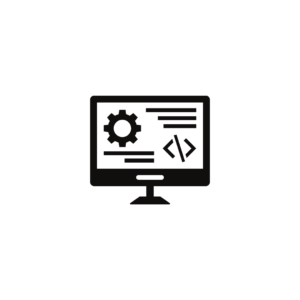Description
An Advanced Diploma in Business Process Management (BPM) is designed to provide students with a robust understanding of how to analyze, design, implement, and improve business processes within various organizations. This program focuses on equipping students with the skills necessary to enhance operational efficiency, optimize workflows, and implement best practices in process management.
Course Details:
Duration: Typically 1 to 2 years, depending on the institution and program structure.
Eligibility: Candidates usually need to have completed higher secondary education (12th grade) or possess relevant prior qualifications in business or management.
Mode of Study: Offered in full-time or part-time formats, incorporating theoretical coursework and practical applications.
Curriculum:
The curriculum for an Advanced Diploma in Business Process Management generally includes the following key areas:
1. Introduction to Business Process Management
Understanding BPM:
Overview of business process management, its significance in organizations, and its impact on efficiency and effectiveness.
BPM Lifecycle:
Study of the phases of BPM, including process identification, design, execution, monitoring, and improvement.
2. Process Analysis and Design
Mapping Processes:
Techniques for process mapping, flowcharting, and identifying process inputs, outputs, and stakeholders.
Tools and Techniques:
Introduction to various tools and methodologies (e.g., SIPOC, BPMN) used for process analysis and design.
3. Process Modeling and Simulation
Modeling Techniques:
Learning to create process models using software tools and methods for visualizing processes.
Simulation:
Understanding the role of simulation in testing process designs and predicting outcomes.
4. Process Improvement Techniques
Lean and Six Sigma:
Introduction to Lean principles and Six Sigma methodologies for improving process efficiency and quality.
Continuous Improvement:
Techniques for fostering a culture of continuous improvement within organizations.
5. Implementation of BPM Initiatives
Change Management:
Strategies for effectively managing change when implementing new processes or improvements.
Project Management:
Basic project management principles and their application in BPM initiatives.
6. Performance Measurement and Monitoring
Key Performance Indicators (KPIs):
Developing and utilizing KPIs to measure the success of business processes.
Monitoring and Reporting:
Techniques for monitoring processes, analyzing data, and reporting results to stakeholders.
7. Technology in BPM
BPM Software and Tools:
Overview of software solutions that support BPM, including BPM suites and process automation tools.
Integration with IT Systems:
Understanding how BPM integrates with enterprise resource planning (ERP) and customer relationship management (CRM) systems.
8. Compliance and Risk Management
Regulatory Considerations:
Understanding compliance requirements in process management and the role of BPM in ensuring regulatory adherence.
Risk Assessment:
Techniques for identifying and managing risks associated with business processes.
9. Capstone Project
Practical Application:
A comprehensive project that involves applying BPM concepts to a real-world case, including process mapping, analysis, and improvement recommendations.
Assessment:
Assessment methods in this program may include:
Project Work:
Hands-on projects involving process mapping, analysis, and improvement recommendations.
Written Assignments:
Research papers and reports analyzing business processes and BPM practices.
Examinations:
Testing knowledge of BPM principles, methodologies, and tools covered in the curriculum.
Career Opportunities:
Graduates of the Advanced Diploma in Business Process Management can pursue various career paths, including:
Business Process Analyst: Analyzing and improving business processes to enhance efficiency and effectiveness.
Process Improvement Consultant: Advising organizations on optimizing their processes and implementing best practices.
Operations Manager: Managing daily operations and ensuring process efficiency within an organization.
BPM Project Manager: Leading BPM initiatives within organizations, overseeing project implementation, and managing teams.
Quality Assurance Specialist: Ensuring processes meet quality standards and regulatory requirements.
This advanced diploma program is ideal for individuals aiming to enhance their expertise in business process management, equipping them with the skills necessary to drive operational excellence in a variety of industries. If you have any further questions or need more information, feel free to ask!









